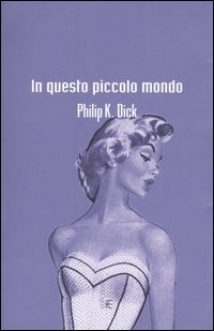What do you think?
Rate this book


352 pages, Paperback
First published January 1, 1985
“I’ll be back pretty soon,” he said. From his eyes shone the leisurely, confident look; it was the sly quality that always annoyed her.
“I thought maybe we could talk,” she said.
He stood at the door, his hands in his pockets, his head tilted on one side. And he waited, showing his endurance, not arguing with her, simply standing. Like an animal, she thought. An inert, unspeaking, determined thing, remembering that it can get what it wants if it just waits.
“I’ll see you,” he said, opening the door to the hall.
“All right,” she said.
“She’s sort of a—” Mrs Alt searched for the word. “I don’t want to say lunatic. That isn’t it. She’s sort of an idiot with a touch of mysticism.”...
“I like to build universes which do fall apart. I like to see them come unglued, and I like to see how the characters in the novels cope with this problem. I have a secret love of chaos. There should be more of it. Do not believe—and I am dead serious when I say this—do not assume that order and stability are always good, in a society or in a universe. … Unless we can psychologically accommodate change, we ourselves begin to die, inwardly. What I am saying is that objects, customs, habits, and ways of life must perish so that the authentic human being can live.”